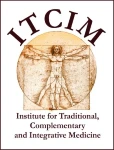
Dr. Elif Erbay - Türkiye
Abstract of the presentation
Mapping Drug Reimbursement Deductions Across Public Hospitals in Türkiye: A Nationwide Analysis
Co-authors: Canan Cengiz, MSc (Health Institutes of Türkiye, Türkiye Health Care Quality and Accreditation Institute, Ankara)Elif Erbay, PhD (Ankara University, Faculty of Health Sciences, Department of Health Management, Ankara)Gökçen Çeliker, MSc (Ankara University, Faculty of Health Sciences, Department of Health Management, Ankara)Gözde Yalçın Ulutaş, PhD (Yüksek İhtisas University, Vocational School of Health Services, Department of Medical Services and Techniques, Ankara)İrem Şengün, MSc (Ankara University, Faculty of Health Sciences, Department of Health Management, Ankara)Sinem Sarıçoban, PhD (Sivas Cumhuriyet University, Faculty of Health Sciences, Department of Health Management, Sivas)Şükran Hiçdurmaz, MSc (Ankara University, Faculty of Health Sciences, Department of Health Management, Ankara)
Branch: Other (Health Policy)
Reimbursement policies play a critical role in ensuring the sustainability of health services. The Social Security Institution (SSI), which plays a central role in financing health services in Turkey, imposes deductions in reimbursements to hospitals for various reasons. These deductions affect the financial structure of hospitals and the delivery of health services. Therefore, analyzing reimbursement deductions across the country may provide valuable information.
In this cross-sectional and descriptive study, deductions in drug reimbursement to public hospitals over a one-year period were analyzed in terms of inpatient and outpatient services. The study aimed to identify areas for improvement in terms of health policies by revealing the distribution and determinants of deductions in reimbursement processes. Annual deduction data obtained from hospitals across the country were evaluated.
Total annual deductions for inpatient services (EUR 4,009,125.79) were almost twice as high as those for outpatient services (EUR 1,987,639.00). Deduction amounts for both inpatient and outpatient services were higher in the first months of the year but decreased significantly between June and August. In tertiary hospitals, both inpatient (EUR 261,444.82) and outpatient (EUR 128,050.22) deductions were significantly higher than in secondary hospitals, as expected.
In inpatient services, the highest deductions were for Eptakog alfa (rFVIIa) (EUR 380,844.77) and human normal immunoglobulin (IVIg) (EUR 234,553.00). In outpatient services, cetirizine (EUR 580,232.13) was the drug with the highest deduction. High deductions were also applied to oncologic monoclonal antibodies such as trastuzumab (EUR 331,713.03) and rituximab (EUR 177,603.75). Deductions were mostly on antineoplastic and immunomodulatory agents affecting the immune system and nutritional supplements.
The study concluded that fluctuations and differences in deductions may be associated with regional differences in audit mechanisms as well as differences in practices in billing processes. Policy recommendations were developed for SSI and health managers for transparency, standardization, and quality improvements in drug reimbursements.
Curriculum vitae
I am a Research Assistant and PhD graduate specializing in Health Management with an academic and research background in healthcare administration, quantitative methods, and pre-hospital emergency services. I completed my PhD at Ankara University, with a dissertation focused on “Forecasting and Capacity Planning in Pre-Hospital Emergency Healthcare Services: The Case of Ankara.” With over eight years of academic experience, I have contributed to several commissions related to academic quality, student support, exchange programs, and institutional performance. My research is widely published, including in peer-reviewed journals such as the Patient Experience Journal and General Medicine Journal. I have authored and co-authored multiple book chapters in prominent academic publications, covering topics like economic epidemiology, green hospitals, and service innovation in healthcare. Internationally active, I have presented at major conferences including the European Health Management Association (EHMA), focusing on circular economy practices and future skill requirements in healthcare. I am also a peer reviewer for national scientific journals and have collaborated in interdisciplinary projects with a focus on innovation and efficiency in healthcare services. My work blends academic rigor with practical relevance, aiming to improve healthcare systems through evidence-based management and policy. My research interests include demand forecasting, cost analysis, and strategic planning in health services.
Please note that some of the texts also include machine-generated translations.





